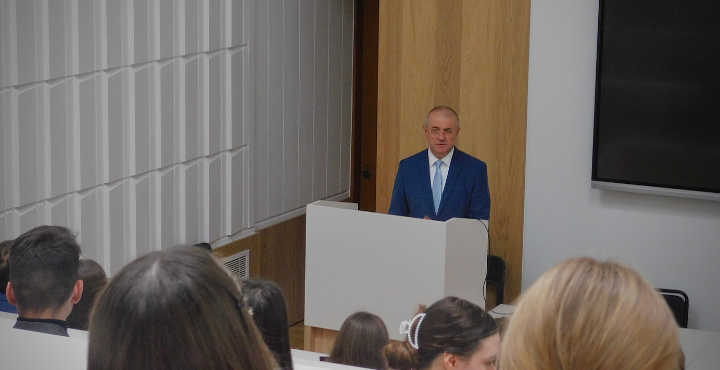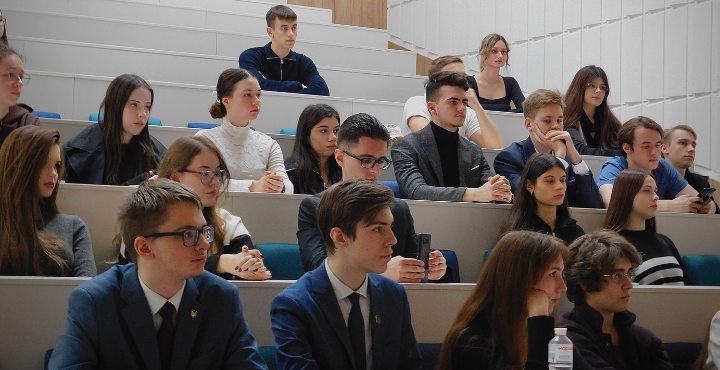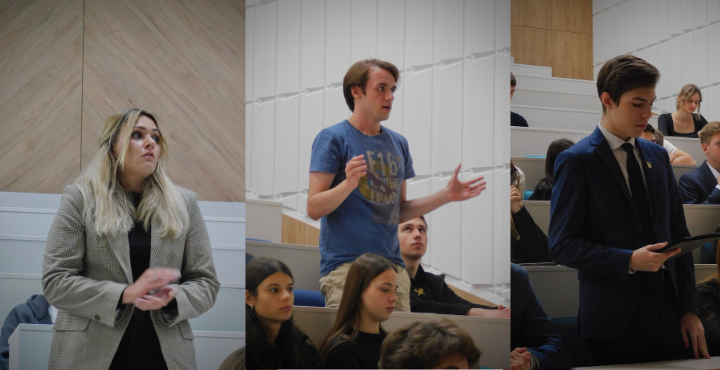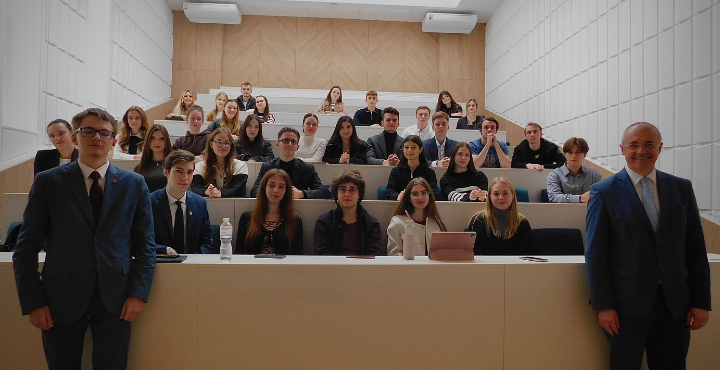Meeting of the Ambassador Extraordinary and Plenipotentiary of Romania to Ukraine Alexandru Victor Micula with students of the Institute of History and International Relations

On 10 October 2024, Ambassador Extraordinary and Plenipotentiary of Romania to Ukraine Alexandru Victor Micula met with students of the Educational and Research Institute of International Relations of Taras Shevchenko National University of Kyiv. The topic of the meeting was the experience of Romania's integration into the European Union.
At the beginning of the meeting, Mr Alexandru Victor Micula noted that Romania's experience could be useful in Ukraine's negotiation process in the future, and then during its integration into European structures. The report itself consisted of 3 parts:
- Prerequisites for Romania's integration into the EU.
- The importance of terminology.
- Some data on Romania to give an idea of the impact of EU integration on the country's economy, society and infrastructure.

The reason why the Romanian experience is relevant is that we have similar historical circumstances. Both countries were under the rule of communism and later began the process of transition from dictatorship and autocracy to a state governed by the rule of law and democratic institutions. An important milestone for Romania was the Snagov Pact, in which political, religious and university leaders set the country's course for integration into NATO and the European Union. Subsequently, Romania was able to become a full member of NATO in 2004 and the EU in 2007.
In the second part of Alexandru's presentation, Victor Mikula argued that by applying for membership, a candidate actually accepts existing EU legislation and has to adapt its institutions and economy to EU requirements. Negotiations are not about changing EU laws for the candidate, but about assessing compliance and creating a project for gradual integration. Therefore, the Ambassador Plenipotentiary called the negotiation process a kind of ‘brainstorming’, when the two parties, the European Commission and Ukraine, should jointly develop a plan from the current candidate status to a full member, as well as a concept of integration in the future.

In particular, the Romanian Ambassador cited key economic indicators that demonstrated the positive impact of EU membership. Significant investments and funding from the EU have helped develop infrastructure, as well as agriculture and the energy system. It was also noted that Romania has not yet fully integrated into all EU structures, as it is not a full member of the Schengen area and has not fulfilled all the criteria for joining the euro area.
After the Ambassador's speech, the audience was very active and engaged in the discussion. The students asked a lot of questions, demonstrating their awareness and desire to understand Romania's European integration process. The topics discussed included the biggest challenges Romania faced after becoming a full member of the EU, limitations in economic policy, public attitudes to change, the fight against corruption and the war in Ukraine.

Thus, the meeting with Alexandru Victor Mikula left a positive impression and underlined the importance of open dialogue and the significance of European integration for the country.
Author: Bozhena Yarytska, 1st year, International Relations
Photo: Anastasiia Teriokhina, 1st year Master's student, Diplomacy and International Cooperation